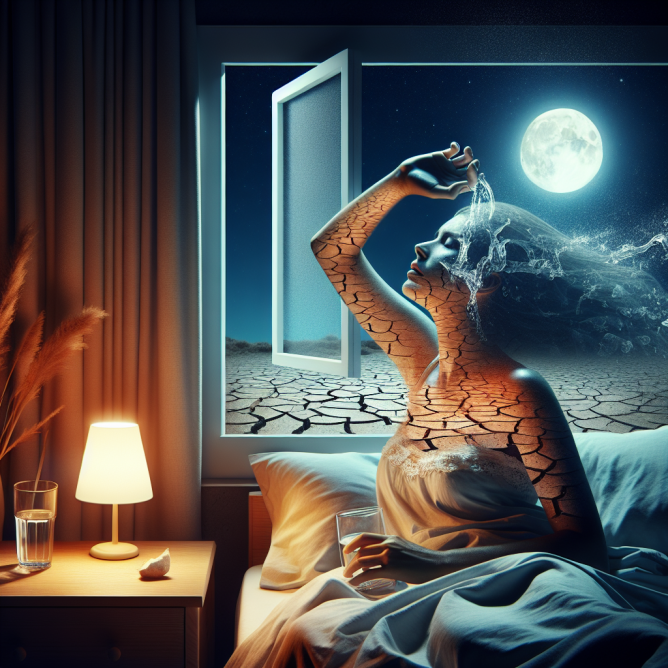HRT Night Sweats: Understanding the Connection
Hormone replacement therapy (HRT) is a common treatment for menopausal symptoms such as hot flashes, night sweats, and vaginal dryness. While HRT can provide relief for many women, it’s not without side effects. One of the most common HRT side effects is night sweats, which can disrupt sleep patterns and lead to fatigue during the day. In this article, we’ll explore the connection between HRT and night sweats, and provide strategies for managing this common menopause symptom.
What are Night Sweats?
Night sweats are sudden episodes of excessive sweating that occur during sleep. They can be mild or severe, and may soak through clothing and bedding. Night sweats are a common symptom of menopause, as the body’s production of estrogen decreases. Estrogen helps regulate body temperature, and a decrease in estrogen can lead to hot flashes and night sweats.
How Does HRT Cause Night Sweats?

HRT replaces the estrogen that the body is no longer producing, which can help alleviate menopause symptoms. However, some women experience night sweats as a side effect of HRT. This is because HRT can cause fluctuations in estrogen levels, which can trigger hot flashes and night sweats. Additionally, some women may be more sensitive to estrogen, which can exacerbate night sweats.
Managing Night Sweats with HRT
If you’re experiencing night sweats as a result of HRT, there are several strategies you can try to manage this symptom:
1. Adjust your HRT dosage: If your night sweats are particularly severe, you may want to consider adjusting your HRT dosage. Your healthcare provider can help you determine the right dosage for your body.
2. Switch to a different type of HRT: If you’re taking oral HRT, which is taken in pill form, you may want to consider switching to a different type of HRT, such as a transdermal patch or a vaginal ring. These forms of HRT deliver estrogen directly to the body, which can help minimize fluctuations in estrogen levels and reduce night sweats.

3. Use a fan or air conditioning: If you’re prone to night sweats, using a fan or air conditioning can help keep you cool and comfortable during the night.
4. Dress in breathable fabrics: Wearing breathable fabrics, such as cotton or linen, can help wick away moisture and keep you cool during the night.
5. Avoid spicy foods and caffeine: Spicy foods and caffeine can both trigger hot flashes and night sweats. Consider avoiding these foods, especially in the evening.
6. Practice relaxation techniques: Stress can exacerbate night sweats, so practicing relaxation techniques, such as meditation or deep breathing, can help reduce stress and minimize night sweats.
7. Consider alternative treatments: If you’re not responding well to HRT, or if you’re experiencing severe night sweats, your healthcare provider may recommend alternative treatments, such as acupuncture or herbal supplements.
Conclusion
Night sweats are a common menopause symptom, and while HRT can help alleviate other menopause symptoms, it’s not without side effects. If you’re experiencing night sweats as a result of HRT, there are several strategies you can try to manage this symptom. By working with your healthcare provider and implementing these strategies, you can find a treatment plan that works for you. Remember to always prioritize your health and wellbeing, and don’t hesitate to reach out to your healthcare provider if you have any concerns or questions.




